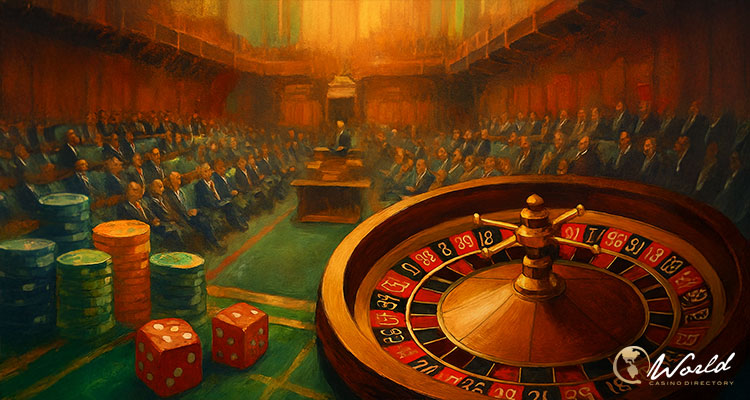MPs are urging UK Chancellor Rachel Reeves to dismiss what they describe as “scaremongering” from the gambling industry and impose higher taxes on its most harmful products, including high-street slot machines and online casino games. The Treasury select committee’s new report calls for a tax overhaul that better reflects the risks associated with different forms of gambling, as Reeves prepares her second budget.
In its sharply critical report, the cross-party Treasury Select Committee accused gambling firms of concealing their most “insidious” offerings behind the image of traditional, harmless pastimes such as horse racing and seaside arcades. The committee argued that while much gambling is conducted safely, online and high-frequency games often inflict significant harm on players, families, and communities.
Committee chair Dame Meg Hillier, cited by The Guardian, emphasized that gambling in familiar settings — from local racetracks to family arcades — is enjoyed responsibly by many, but warned that “the industry is hiding its more insidious parts behind the friendly facade of its traditional, cultural forms.” She added, “For too many people, the highly addictive and harmful nature of online betting games has seriously impacted their lives and the lives of those around them.”
The MPs said the chancellor should introduce higher duties on products that pose greater risks of addiction, such as online gaming and slot machines. These segments, which make up a large share of the £11 billion industry, have grown substantially in recent years. Remote gaming, for instance, rose from 12% of total gambling revenue in 2014 to 44% by 2024.
Industry Pushback and Claims of Economic Risk
The Betting and Gaming Council (BGC) has pushed back strongly, claiming that new tax hikes could damage the economy and push consumers toward unsafe, unregulated markets. BGC chief executive Grainne Hurst said, “Further tax increases on the regulated online sector risk undermining consumer protections by pushing players towards the unsafe, unregulated black market – while reducing Treasury revenues and cutting the vital funding our members provide to British sport, including horseracing, football, rugby league, darts and snooker.”
Hurst added that “BGC members contribute £6.8bn to the economy, generate £4bn in tax, and support 109,000 jobs, while facing an effective tax rate of up to 80%.” The group has repeatedly warned that higher duties could lead to shop closures and job losses. Fred Done, co-founder of Betfred, said that if gambling taxes were raised, “all 1,287 of its UK shops could disappear from the high street,” adding that “a 5% increase on gambling taxes would raise that number [of unprofitable shops] to 430.”
A spokesperson for Flutter UK and Ireland, which owns brands such as Paddy Power, Sky Betting & Gaming, and Tombola, said, “It’s not scaremongering to suggest that tax rates of 50 per cent on machine games and online games such as bingo – as demanded by the Institute for Public Policy Research – could have a significant impact on the industry, jobs and investment.”
MPs Reject Industry’s Denial of Harm
During committee hearings, MPs criticized what they saw as a dismissive attitude from the industry. Hillier described as “extraordinary” a moment when Hurst insisted that gambling causes no social harm. “You feel a moment in a room sometimes where everyone’s jaw drops,” Hillier said. “A couple of us pushed to ask if she was sure she was saying that. But she doubled down.”
The committee’s report explicitly linked taxation levels to the degree of social harm caused by various gambling products. It recommended that Reeves’ upcoming budget distinguish between less risky activities, like sports betting, and more harmful forms, such as online gaming and slot machines.
Currently, gambling is taxed at varying rates: sports and horse racing bets are subject to a 15% general betting duty, casino gaming duty ranges from 15% to 50%, remote gaming duty stands at 21%, and machine gaming duty — which applies to high-street slot machines — is 20%. The Treasury had been considering aligning these rates under a single system, but the committee, supported by thinktanks such as the Social Market Foundation (SMF) and the Institute for Public Policy Research (IPPR), urged the government to abandon that idea and instead focus on taxing addictive forms more heavily.
A Debate with Fiscal and Social Stakes
Gordon Brown and several Labour MPs have supported higher gambling taxes in the United Kingdom, arguing that an additional £3 billion could help finance the end of the two-child benefit cap. Nearly a quarter of Labour MPs have already signed petitions urging the government to act.
An HM Treasury spokesperson reiterated that “tax policy decisions are made by the Chancellor at fiscal events,” noting that its consultation on remote gambling is examining the sector’s rapid shift toward more profitable online operations.
Despite the fierce industry opposition, MPs maintain that the chancellor must stand firm. As Hillier put it, “We are urging the government not to cave in to industry scaremongering, and to tax online betting games at a rate that reflects the level of harm they inflict.”


